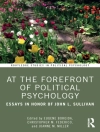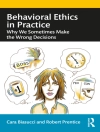Via 100 entries,
21st Century Psychology: A Reference Handbook highlights the most important topics, issues, questions, and debates any student obtaining a degree in the field of psychology ought to have mastered for effectiveness in the 21st century. This two-volume reference resource, available both in print and online, provides an authoritative source to serve students′ research needs with more detailed information than encyclopedia entries but without the jargon, detail, or density found in a typical journal article or a research handbook chapter. Students will find chapters contained within these volumes useful as aids toward starting research for papers, presentations, or a senior thesis, assisting in deciding on areas for elective coursework or directions for graduate studies, or orienting themselves toward potential career directions in psychology.
The cadre of contributing authors consists of established experts within the field of psychology, including several former presidents of the American Psychological Association who are in tune with current and likely future directions of this amazingly broad and diverse field. The 100+ chapters provide material of interest for students from all corners of psychological studies, whether their interests be in the biological, cognitive, developmental, social, or clinical arenas. Coverage includes cutting-edge topics, such as human performance in extreme environments. Chapters are brief, reader-friendly, and presented at an appropriate level for undergraduate students, with references to guide them to key further readings.
Key Features
- Provides students with initial footholds on topics of interest in researching for term papers, in preparing for GREs, and in consulting to determine directions to take in pursuing a senior thesis, a graduate degree, a career, etc.
- Offers full coverage of major subthemes and subfields within the field of psychology, including social, developmental, cognitive, biological, clinical, and methodology
- Provides uniform in chapter structure to make it easy for students to locate key information, with a common format of Introduction, Theory, Methods, Applications, Comparisons, Future Directions, Summary, References & Further Readings, and Cross-References
Giới thiệu về tác giả
William Buskist is the Distinguished Professor in the Teaching of Psychology at Auburn University and a Faculty Fellow at Auburn’s Biggio Center for the Enhancement of Teaching and Learning. He has published widely on issues related to teaching and learning, both within his own discipline of psychology and more generally in higher education. His most recent publications include edited works with Groccia (Evidence-Based Teaching) and with Victor Benassi (Effective College and University Teaching: Strategies and Tactics for the New Professoriate). He has served as President for the Society for the Teaching of Psychology and is currently the Editor-in Chief for the Society’s e-book program). He has won numerous teaching awards at both the local and national levels as have many of his graduate student protégés. He is a Fellow of both the American Psychological Association and the Association for Psychological Science.












